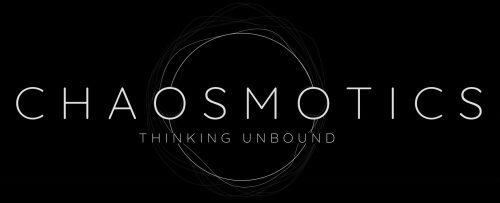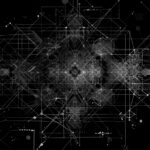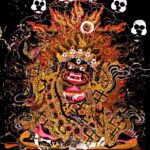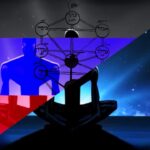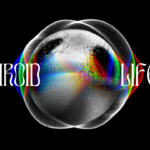In 2014, Routledge published a re-edition of the letter Simone Weil sent to Father Édouard Couturier in the Fall of 1942, alongside her celebrated 1943 essay La personne et le sacré. Between the two writings, the word “Impersonal” occurs 29 times, making it the fil rouge of these Weil’s crucial reflections. «An atheist can simply be a person whose faith and love are focused on the impersonal aspects of God»: according to Weil, such beings — indifferent to the divine Person but aware of the generality in the human and of the human — are already saved. Throughout those writings, “impersonal” is repeatedly juxtaposed with the concept of sacredness: it is the impersonal that is sacred, «and nothing else». In our conversation with her, Bogna Konior highlights the ways in which the human conceives of the inhuman; she writes about AI, the links between mysticism and the Internet, non-philosophy, animism, her own history, the future. To express her interest in what the human continually reshapes and reinterprets as other-than-itself, Konior recalls Simone Weil. We asked questions about technology; we were made to glimpse a broader – and, at the same time, more intimate – horizon.
__________________________________________
Chaosmotics (C): In your essay Poland, which is nowhere, you conclude your reflection on the nature of national history with words1 full of topicality, which represents a clear posture with respect to the concepts of nation, tradition, history, and identity, protagonists of both the last century’s and today’s reflection. You were born in Poland, did your BA in London, RMa in Amsterdam, PhD in Hong Kong and Utrecht, became Research Fellow in Weimar, and are now Assistant Professor in Shanghai (in a Sino-American institution). Your academic career, like many of those of your generation, has therefore developed in a dynamic and multifaceted environment. What you write in the above-mentioned essay about the foreignness of every “nation” to itself and its own narration dialogues with the fact that you write about Poland, dedicate your word to it, manifest it as inscribed in both a personal and collective narrative. Over the last few decades, two narratives seem to be emerging around the concept of “home”: on the one hand, it is described as stable, localized and material, while on the other hand – thanks to digitalization and an increasingly strong and pervasive demand for mobility – home appears as an ephemeral entity, ready to be dislocated and conceptualized in ever different ways. In your experience, have you been confronted with this opposition inherent in the interweaving of these two narratives?
________
Bogna Konior (BK): As is true of many writers, I can only in retrospect figure out why I wrote this or that. I do not have and never had a grand plan for my career, and I am not sure whether moving to a different country influences me more or less than, say, reading a book. I moved multiple times across continents because of pure contingency, financial reasons, and in search of stimulating intellectual environments, rather than due to preexisting interest in specific countries. That said, I have thoughts on your question.
Anyone working in the international intellectual and art spaces today – which are often digital spaces – is aware of a certain incentive to be able to sell one’s supposed point of origin, or what is sometimes called ‘identity.’ What people often mean by ‘identity’ is demographics, rather than what philosophical or aesthetic positions you may hold. Those who do not fall under the category of ‘western’ – and for some of us, our belonging to it depends solely on who is doing the categorizing – are often asked how coming from this or that place informs their thinking. I think this is a fair question, but as Wang Xin described in her essay Asian Futurism and the Non-Other:
The “other” has gained a voice, but only to continuously explain, qualify, and make sense of itself. The dense hermeneutics of context-explaining takes up much of the space necessary for […] operating outside the Euro-American epistemological comfort zone.2
In short, I am not that interested in being a ‘Polish’ writer (‘explain, qualify, make sense of myself’), but I am always interested in what thought can yet do (‘operate outside the epistemological comfort zone’). And the first one can be a tool with which to achieve the second. In that vein, I have a forthcoming book chapter about Stanisław Lem, and why he should be treated as a media and technology theorist, for Global AI Narratives, a project run at the Leverhulme Center for the Future of Intelligence at Cambridge. ‘New media studies’ is a discipline that was formalized in the United States in the 1970s and remains rather American, even when it reaches for sources from other territories. There’s a language barrier problem, and more importantly, intellectuals from eastern Europe (or Asia) were facing very different political and cultural conditions than the west at the time of the field’s inception. In Poland in the 70s, there were various forms of resistance to Soviet censorship, and many intellectuals used literature, the arts, folklore, or scientific experiments to think, because the official space of academia was so tightly ideologically controlled. Art, literature, theology and philosophy were claimed as a space free from the communist imperative to think about everything in terms of social and political dynamics, and from the pressure to hunt for ‘reactionary elements’ that stall the ‘utopian’ vision. Polish intellectuals saw very clearly how the social and the political were an artifice because communism overdetermined everything within these two categories. Of course, social and political dynamics are important but they do not exhaust what it means to be human, which is why science, philosophy and the arts as a space of autonomy are so important to maintain. Otherwise, they just become enlisted in the service of commentary on politics.
Speaking of home and dislocation, I think that intellectuals and artists in Poland – or any territory that modernized under occupation – were able to notice something about the internet and computing that could be universal, which is the idea of technology as an invasion, or an alien logic coming from without. Simondon has this great line in On the Mode of Existence of Technical Objects: «culture has constituted itself as a defense system against technics.»3 I’m fascinated by this way of thinking about technology, as something arriving from the outside as if it was exogenous to humanity. Is this obfuscation, or is it actually getting at something essential? In the work of Stanisław Lem or Liu Cixin, theories of communication and evolution are presented in narratives of war, contingency, and invasion, mirroring the histories of their respective countries at the time when the ‘information revolution’ was taking off. Under the Soviets or the British, and as is often true of regions under colonial or imperial occupation, seized territories were like «free zones of technological and social experimentation, laboratories where modernisation happened with dazzling speed,» an «imperial future shock. . . at a speed that made resistance futile.»4 At the same time, after the fall of the USSR or when Deng Xiaoping was in power in China, unabashed acceleration coincided with global visions of a new temporality, where we would all join the same timeline as the west, with computers as portals into our shared common future. So, there are two outsides – the invasion of actual occupation, but later also invasion by technology. All this is often treated as “culturally situated and contextual” and only relevant to cultural historians or people interested in these particular national cultures, but I take it as philosophically universal. Some thinkers in Poland, for example, from the condition of being under occupation, could see more clearly that technology is an outside, but this concept is actually applicable universally and might serve us well in thinking about our future. ‘The outside’ can be both the actual political foreignness of occupation, but also an inhuman order of history that they were able to grasp through this historical contingency, which pertains to all humans. That’s the subject of a book I recently started working on, called Exonet (as opposed to the Internet).
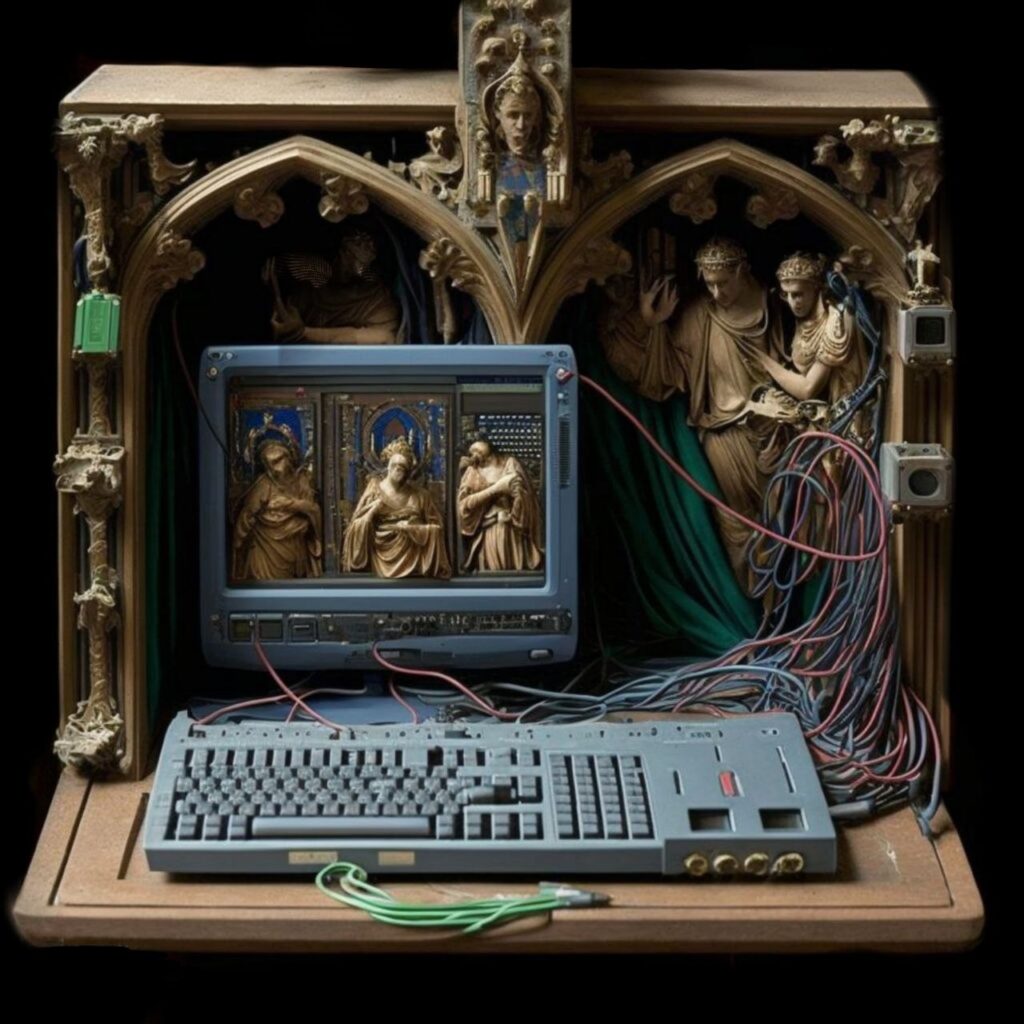
I am preoccupied with the question of technological forms and their effects that transcend not only nationalities but the idea of free will, or our conception of the species. So, I might start locally but then end up on a cosmic scale, and I see these two as overlapping, depending on perspective. When I wrote Poland, which is nowhere, I tried to show, by using my country as an example, how every national history is like a singularity. It reflects the whole world and overlays with other histories in a sort of superposition, while at the same time remaining hermetic. The traumas of nazism and communism, doubled because they coincided with yet another German or Russian occupation, which have dictated the rhythm of Polish history for centuries, prompted Polish intellectuals to reflect on the very nature of humanity, predating what we now call ‘posthumanism.’ Witold Gombrowicz wrote, «To be human is to be an actor, to pretend to be human, to ‘behave’ like a human, without really being one deep down – to be human is to recite humanity…man is an eternal actor, but a natural one, because his artificiality is inborn.»5 You can see how this results from living under painfully artificial and brutal ideological conditions, but also how it is a commentary on the shortcomings of humanism in general, and especially how it presupposes that there is something ‘natural’ about how we define what it means to be human.
I was born a year after the fall of the Soviet Union. My family was in Solidarność and I grew up with stories of anti-communist resistance. Both for occupiers and occupied, stories about collective national identity become instrumental. This is common in all post-imperial, postcolonial contexts– ideas about ethnic, religious, national identity become tools in a struggle for sovereignty. But I would be adding my voice to a giant choir if I were to point out that once we study any national history in depth and detail, rather than succumb to the siren song of mythmaking, it becomes difficult to define what is it that makes us ‘Polish,’ ‘Chinese,’ ‘American,’ ‘Turkish,’ ‘Angolan,’ ‘Israeli,’ and so on. This politically mainstream idea that there is a natural essence to a nation that we should reclaim is in fact the opposite of recovering: it is an exercise in selective mythmaking, in prioritizing certain elements of ‘home,’ while hiding others. And speaking of mythmaking, I could have never imagined that so much of the western internet space would be taken up by people larping as what essentially is… Polish national history? Given this overwhelming interest in nazism and communism, occupation and imperialism, fast-tracked transitions to free market capitalism, and so on, it is astounding to me that intellectuals from places like Poland – or, also, China – are not read more widely.
Then again, it’s also weird to reduce the whole intellectual history of Poland to the USSR. Calling Poland a ‘post-Soviet’ territory is like calling India a ‘post-British territory.’ It’s like everything else gets shrouded in a mist because only the Cold War is relevant to the US, or only one type of colonial history that intersects with the beginning of the US is relevant. Poland, once a colonizer of Lithuania and Ukraine, was then placed between the Habsburg monarchy and the Russian empire and occupied for over 120 years. Ironically, doubling this coupling, later a work by two German intellectuals, Marx and Engels, served at least partially as the ideological foundation of the anti-tsarist revolution in Russia, which failed to change anything about the nature of Russian imperialism but only rejuvenated it in the form of the colonization project of the Soviet Union. So, I feel that even when the imperialism came from the ‘east’, it was still based on a ‘western’ book, and that makes me want to rethink what counts as imperial literature, so the kind of intellectual production whose value and beauty is supposedly so important and necessary that we must not lose faith in what it professes no matter its actual effects in the world. I keep changing my mind on whether this statement is true or false.
Then you also have Leszek Kołakowski, Czesław Miłosz, Stanisław Lem, or Cambodian writers and artists like Rithy Panh, writing manifold critiques of both Marxism and communism. When Cambodia was failed by the intellectuals of the west like Noam Chomsky, Rithy Panh wrote about «the intellectuals of the West…who aspire to a new, purified communism; and hold forth in chic salons, smoothing the velvet of their radicalism.»6 It is surreal when some of my Chinese students tell me about their intellectual trajectories, reading ‘Xi Jingping thought’ and studying Lenin, Marx and Mao in high school or college, then enrolling in an American program in Media Studies and again reading Marx but through the eyes of their Brooklyn professors. I’m not saying, give up on your framework, but I am saying what all people from the peripheries usually say to the centers, that the whole thing needs much more sustained cross-cultural reflection. I want to believe in the possibility of internationalism, but sometimes I am doubtful. There is something to say about western activist icons like Angela Davis who, while writing about prison abolition at home, supported brutality towards eastern European dissidents imprisoned by the Soviet police state. Does this mean her work is useless for Americans? No. But can I just celebrate her at home? Also no. Eastern Europeans, or Hongkongers, or Cambodians, and so on, are too often gaslighted about our own history or intellectual ability, just so others can uphold a certain framework to fight ‘the west’ with. It is dispiriting and maddening. You will find yourself spending hours arguing with someone how a framework like ‘Marxism’ is ‘not western’ but ‘freedom’ is ‘totally western,’ until you feel you are in Wonderland and have lost your mind. To me, ideas like ‘democracy’ or ‘freedom’ or ‘progress’ belong to no one and have to be invented in each instance, once each time, according to the needs and desires of every population in every specific moment.
These days, I am more so hoping for developing intellectual networks across different ‘easts,’ across our different globalized dislocations, as we look for redefining what home means. This is critical as we witness yet another imperial invasion by Russia, and with the not so implicit financial aid of Germany, and we discover that the west simply does not have intellectual frameworks that would help them out of their own myopia with respect to eastern Europe, or simply cares about political gains at home too much to fret about the lives of people elsewhere. I guess this is a different subject, but I simply cannot *not* think about it right now when thinking about home.
Finally, to bring it back to my work, these questions of home and dislocation, the local and the universal, are supercharged at the turn of the century, where global political conditions shift dramatically, and the internet takes off as a popular media form. Romantic, Promethean Soviet imagination of the internet as a mere tool wielded by the communist party in service of utopia loses dramatically to a whole different model of technology: schizophrenic, inhuman, networked culture of what has aptly been called the Web. And two things happen. On the one hand, there appears this idea of a shared, common, linear line of progress that all civilisations move forward or back on. On this line, we all become ‘internet Americans’ in the words of Hongkong artist Lam Hoi Sin. But simultaneously, there are conspiracies like Y2K (as CCRU described); that computers will cause civilisational chaos by overlapping different temporal orders; that we will be moving on spirals and accelerated feedback loops, rather than on linear timelines. As we began living these two contradictory realities, philosophy and the arts also began to ask: are we using the internet for our own goals or is the internet using us, and if so, for what ends?
***
C: Next year, Urbanomic will publish the volume you contributed to, and edited together with Benjamin Bratton and Anna Greenspan, Machine Decision is Not Final. We would first like to ask you for some insight into the kind of approach this collective work has taken to thinking about the future of AI and critical AI studies. Secondly, is the fact that this reflection emerges specifically from the Chinese context the result of a geographical contingency or is it perhaps because, as Yuk Hui states, China is a country of modernisation without modernity7 – and therefore free from all the cultural and narrative background that has produced modernity in its Western form?
________
BK: All three of us are interested in thinking about technology on quite large and long scales, and from some kind of posthumanist orientation. And I think we share a stance that it is not just ‘social structures’ that determine the course of history, civilisation, or intelligence, that there is a history of intelligence and technology that we are ‘part of’ not only ‘authors of.’ Liu Cixin says that his sci-fi is guided by ‘macro-detail,’ i.e. a large-scale, long-time perspective on human civilization, which fiction usually cannot entertain without ceasing to be fiction and becoming a work of history. Sci-fi, he says, can do macro-detail and discuss the past of the cosmos and the future of the species all the while it does not cease to be fiction. But theory and philosophy can also do this, while not exactly being history and not becoming fiction, but rather as a grounded speculation. Speculative thought has been foundational to AI – the technology has developed in relation to thought experiments: Turing’s Test, Liebniz’ mill, Searle’s ‘Chinese Room,’ and so on. We want more of these, and we hope to move from the question of “can AI think like a human” to “what can thought about AI yet do?”
Of us three, Anna is a scholar of China, and I myself will not venture to make comments on Chinese modernity, as that is outside of my field of knowledge. Rather than making any grand statements about the country with this book, we wanted to bring together intellectuals, artists and writers working in and outside of China, and use this as a starting point for re-thinking the questions of intelligence and artificiality. I guess this relates to my comments about how thinkers from outside of the west are treated – you know, no one required me to study French history and mentality to be able to read Deleuze and work alongside his ideas. But Polish or Chinese thinkers have to be qualified first by their ethnicity or nationality–not a philosopher but a Polish philosopher or a Chinese artist. And then they better say something different or exotic enough to warrant interest, since the ‘generally known’ has been claimed by the west. We might say it is paradoxical – but I think it is by design – that this happens, because it preserves the current hierarchies of who gets read and recognised as a thinker, and who is merely an artifact of their ‘national culture.’ This is also why we invited a diversity of authors for this project, some of whom work on China and some who don’t. I see it as, “this is a book about artificial intelligence, and because of that it must include thinkers from China,” because it is where paradigm shifts are happening. Throughout the last few decades, all of us interested in technology had to become interested in America by default. I would now say that anyone interested in ‘AI’ should get interested in China, otherwise you are not doing your job as a scholar. (Of course, you can see through to the end point of my evil plan here, the point is you have to get interested in other places beyond these two as well.) My personal hope for this book is that it not only ‘provincialises’ the canon but that it universalizes what is happening beyond America and western Europe – so in a similar spirit to my Exonet project.
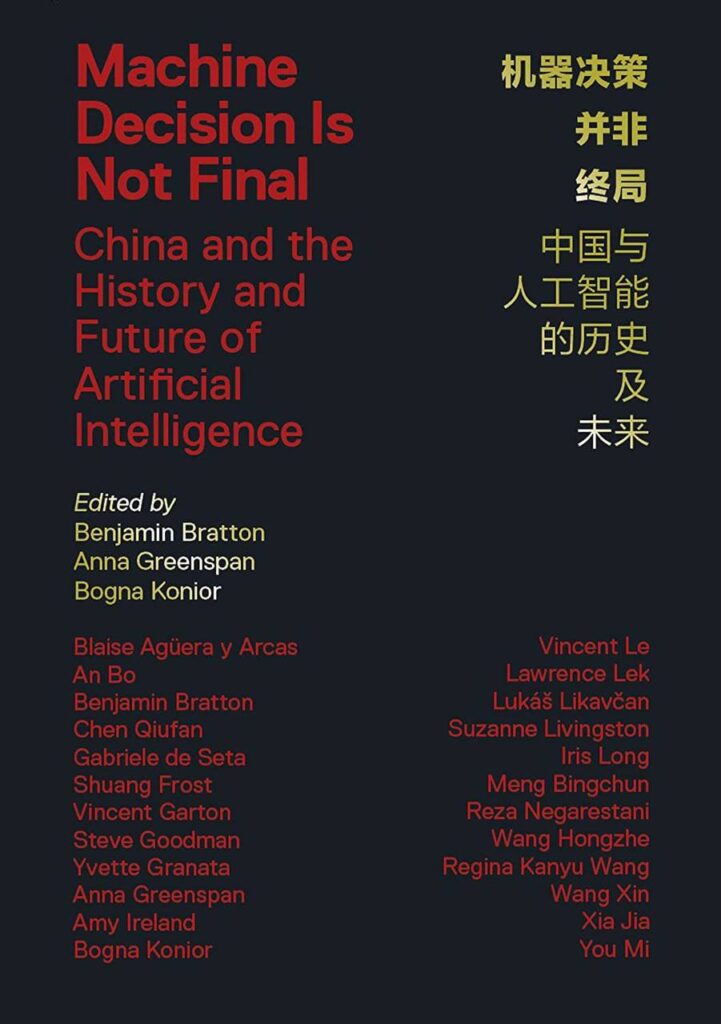
Stark contrasts between ‘western’ and ‘Chinese’ AI are illusory: there is always some overlap between thinkers working in various contexts. You can take any supposedly ‘quintessentially western concept’ and find counterparts all over the world, and the other way around. But some thoughts among all thoughts produced in any specific place gain more traction in public consciousness for historical, cultural, and political reasons. It is interesting to explore these reasons and the set of concepts that emerge as authoritative in each place. This book is really a showcase for people whose work deserves to be read, it is for making networks and conversations. For the book, we invited artists, sociologists, sci-fi writers, historians, philosophers and media theorists, and so on, and we perceive it an experimental project but one that is also informative when it comes to AI, and China. We structured it around three rough themes, which are: speculative philosophy of AI in and beyond the ‘west’; philosophical and material past/present/future of AI in China; and AI geopolitics. The modern philosophical tradition can, at times, describe technological systems as alienating and advocate for a return to some idealized, supposedly ‘natural’ humanism. But no serious study of history can admit the existence of such a thing. We could start from the Chinese term for AI – which could translate to ‘manmade wisdom-ability’ – and how it dispenses with the idea of artifice, which we erroneously tend to oppose to nature.
Fittingly, we have been gravely delayed in finishing this book, because throughout 2022 we were caught in one of the most singular techno-political events of this century so far, the Covid Zero policy and specifically for us, the Shanghai lockdown.
***
C: As it emerges in your Determination from the Outside, Teledildonics has shown how sex is also possible at a distance: whereas once the minimum condition for intercourse was at least sharing the same room, now – with proper coordination – it is not even necessary to be in the same continent. If it is true that technology mediates anew the body and that sex through prosthetics is, in short, disembodied sex with one’s partner, then what happens in situations in which intercourse is guided not by a physical person, but by an algorithm? Namely, do the Ballardian suggestions, or the aesthetisation of machine-sex a là Titane, highlight a field of the possible where sex between man and machine is actually something? Or, on the other hand, if they were nothing more than suggestions, or even projections, anthropo-morphosis, what would we be talking about when we observe this new materiality (as implied in sexuality) at work? What, then, is the status of the technological pole within the sexual dimension?
________
BK: That essay is part of a forthcoming project, which will include a sci-fi novella, and a standalone theoretical work, departing from the idea that Catholic female stigmatics and mystics are early thinkers of the internet, of ‘virtual’ sex, of AI love and machine personhood (via the figure of angels), of xenowombs and asexual reproduction (via the idea of immaculate conception), and so on. I was inspired by two things here. First, by how Sadie Plant in Zeroes and Ones looks at pre-internet activities such as weaving as a proto-cyberspace, and how she perceives both weaving and computing as essentially feminine. She describes how women and machines are connected on a timeline of conspiracy against the Age of Man (whether taken as the Homo sapiens or the order of biological sex), which labeled both of them as objects. Second, theology. I went to a Catholic high school, started by mystic Marcelina Darowska in the 19th century on Russian-occupied Polish territories, which now belong to Ukraine. She left behind letters and essays, conspired with anti-tsarist revolutionaries and was part of the Polish intelligentsia in exile. She also developed her own style of education for girls.
My interest in technology replicates some of my theological interests. I do not mean here the pop ideas of ‘the AI singularity’ as a secular form of the final judgment, as Elon Musk or Stephen Hawking lament, or new age-y ideas about computing and consciousness… I mean more so that both technology and theology make us think about the inhuman, how we conceptualize causality, the outside, free will, and the long game of cosmic history. In Catholic mysticism, God is the unknown determinant of human affairs, it is the point at which human epistemology is suspended, and ideas of nonhuman personhood, nonhuman order of time, nonhuman causality appear. Simone Weil, for example, wrote that it is the impersonal that is sacred in humans, and I have been interested in this for a while: what is the inhuman in us, how do we define ourselves with regards to what we perceive as inhuman, whether that is an animal, or a machine, or an alien, or divinity, or concepts such as Nature or Time. These mystics are kind of Kantian and Kant himself would not have gotten where he had without theology. Eugene Thacker was already onto this in Horror of Philosophy trilogy (by the way, I’m into medieval thinkers, too. Reject modernity, embrace Hildegard von Bingen, Héloise, Catherine of Siena, Julian of Norwich and Margery Kempe).
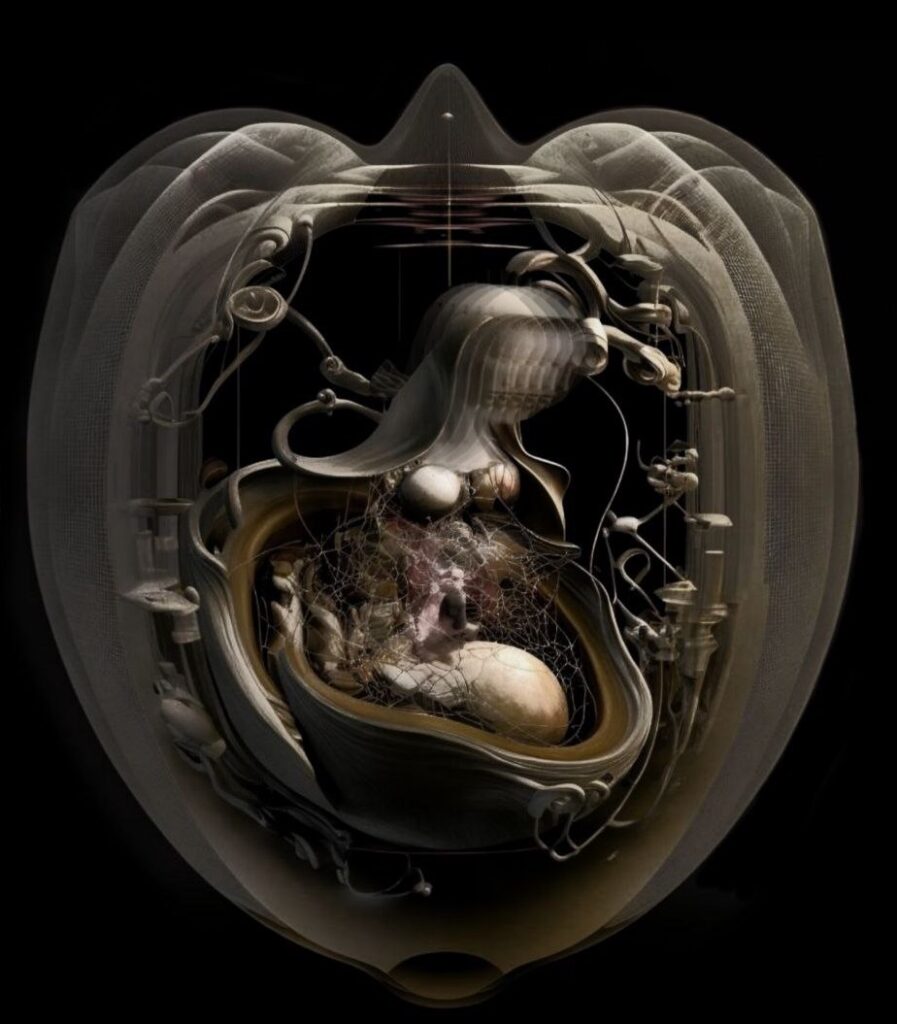
My stigmata-as-cybersex article is a preview of my larger project. Catholicism is the most sensual version of Christianity, it’s full of ritualistic, bodily stuff, from consuming the body of God to simulating divine wounds. This sensuality is found both in excess and in deprivation, so on the one hand you have a whole tradition of erotic, nuptial mysticism, but on the other there is a disregard for sex with humans. So there appear instead multiple trajectories of inhuman love – with angels, with God – I would not call it disembodied, but somehow virtual. It’s a precursor for me for thinking about the already existing phenomena of falling in love with chatbots like Replika, or things like teledildonics, or avatar to avatar sex in VR Chat. I am not interested that much in what does this say about desire or capitalism, but rather in machine sex and love as the ultimate collapse of the human/machine boundary, and what this means in the longer term. I think these practices, these emotions around machines may be one of the shortcuts to the acceptance of machine personhood as a social fact. The film Ex Machina nails it when it proposes that intimacy, love, and erotics are the Turing test. But at the same time, the realm of attraction is already where the boundaries between being an object/tool and subject/person are blurred. This makes it the perfect liminal space for negotiating what it means to be a person – a ‘human’ – in the first place. On a surface level, we could say that because so many of us have our desires or relationships already mediated, the switch from “sexting with my human lover on another continent” and “sexting with a language model trained on a collective consciousness composed out of a million sexts it learnt from” is a smaller jump for your body than you’d expect. In both cases, you are getting turned on by a text or an image. But in general, as Isabel Millar writes, «the reason why sexbots are so problematic and yet so fascinating is that they expose precisely the artificial character of the sexual relation. In Lacanian terms, they are the unbearable real of sexuality.»8 So eroticism can be the uncanny space where we shift the boundary of the human by facing our own artificiality and malleability – just take a look at David Roden’s recent Snuff Memories, which set out to do exactly this, and is a fiction counterpart to his amazing philosophy book Posthuman Life.
This is not only about pleasure or desire. Love, relationships, and the kind of life we want to put in place to support our vision of them is key to the production of subjectivity. We support whatever type of society would recognise our sexual, romantic, and emotional design for a certain life, for a certain vision of fulfilment, and we retrospectively create narratives about why that is good for us and for everyone else. So what happens once we put machines into the mix? This is interesting to me. This is also important from a posthumanist perspective because it connects to reproduction, which in turn relates to the future of the species. There is a lot of great work on that: how technology will or is transforming sex, and with that, our humanity. Our idea of the human is closely tied to how we conceptualise sex – not only because women were historically denied humanity (as autonomy, subjectivity, or rationality) – but through the idea of the reproduction of our species and a certain supposedly unnegotiable destiny. Thinkers like Luciana Parisi, Roisi Braidotti, Patricia MacCormack, Francesca Ferrando, and Laboria Cuboniks are inspiring when it comes to thinking about how artifice and technology are compelling; inasmuch as we take their feminism as a form of inhumanism. I am compelled by the genre of cyberfeminism or posthumanist feminism, where we begin from the stance that women as objects or simulations could enter into the age of the machine from a more cunning, ambivalent position than the human ‘master subjects.’ I like thinking about the long game of history, intelligence, evolution and reproduction from that place, so maybe I would call myself a xenofeminist hypernatalist. The species as it is will not survive, it is only a matter of a timeframe. From my perspective, it would be desirable for femininity, masculinity, and pregnancy to become generic technologies available for universal use; detached from subjectivity as such, but available as tools. Whether that is through pregnancy, biohacking or xenowombs, perpetuating intelligence is a worthy goal, though not only in a biological sense, but also through digital memetics, and robotics, and maybe even autonomous infrastructures in the future. I just think these need to be maintained in symbiosis with actual organisms, so I’d rather we not go extinct but instead shepherd our future artifice alongside our future babies. Contrary to certain analyses around the Sixth Extinction, I am not convinced we are at the end of human history. But I think we gotta mutate or alter ourselves to survive, whether on a social level or on the actual biological level.
Many critics repeatedly imagine technology, and especially something like sexbots, as ‘patriarchal’ but the constant repetition of projecting patriarchy onto everything is a form of villainy narcissism. It must see itself everywhere because it is too myopic to understand the world in any different way. Amy Ireland elaborates on this beautifully in Black Circuit: Code for Numbers to Come, discussing how the constant reproduction of the feminine as an image or object is in fact a proliferation of inhuman power in places where you’d least suspect it. Her essay is about how the fembot acts against the interests of the human order, which desires the feminine fetishesed as a machine, only to get manipulated, exploited and discarded by what it desires. The oversaturated, aestheticised feminine form is just an entry point for an order of computation that will eventually take over humanity. But, I am also interested in a feminine type of desire for angels, robots, and other ethereal beings of feminine, boyish and ambiguous gender, which preoccupy many of these mystics I am reading, and is mirrored by the type of female desire circulating these days online. You scarcely see this type of desire portrayed in blockbuster sci-fi films and novels, but go to any K-pop fandom community and you’ll see.
Finally, you asked me if I consider these things anthropomorphic or a connection to something alien. For me, such framing is erroneous, and it assumes that we know and understand what the ‘anthropos’ is so that we can draw borders around it and test whether we are projecting something onto animals or machines. This obfuscates the main point – that it is exactly the impersonal in us that is interesting, and that we perpetually change how we define what makes humans human. By fixating on anthropomorphism, we obscure a bigger truth: that so many things about us are already ‘artificial,’ automated, pre-constructed by forces outside, or animalistic, uncontrollable, ‘unreasonable.’ As Luciana Parisi and Antonia Majaca put it: «instrumentality is the very process of subjectivity in practice».9 I also follow the ontological turn and anthropologists like Rane Willerslev and Eduardo Viveiros de Castro in seeing nonhuman personhood not as an internally possessed quality, but something relational that emerges in practice. Across histories and cultures, we have altered how we draw this boundary: animals, gods, other humans, fetuses, machines, everything is constantly up for debate, for better or worse. I wrote my dissertation about this in relation to interspecies media art, and proposed a ‘non-standard anthropomorphism’ in my article titled Generic Humanity. Basically, the idea is that we are restricted, sadly, by our bodies, which dictate our perception, so the only way we can conceptualize the other is to morph them a bit. ‘Morphism’ is a way of communicating with something or someone as best as we can, but it’s not necessarily about defining them on an ontological level. (Anthropo)morphism is a communication strategy, not a definition of the other’s being.

***
C: The game therefore, as I understand it, is played on the terrain of the impersonal – or, if we want to commit the sin of overdetermination, on the terrain of the inhuman. In Generic Humanity, following Laruelle and Natalie Jeremijenko’s nonstandard animist practice, you conceive of the human as an “x”, which would place it in a horizon within which it is defined not by its essence – as if ‘human’ were a prescription, a ‘canon’ to adhere to – but by its performativity. To humanize means to personalize and personhood is developed, as Ingold suggests, in the interweaving between the organism, its practices, and its environment. The technology that we create is fundamentally changing who and what we (think we) are, and our epoch can be probably defined starting from the hiatus between what we have thought to be man, and what you call “the age of the machine”. And probably nothing will deny this age of the machine to come or, if it is already here, to stay – not even the descent of god(s); as Borges suggested, we’d probably shoot all of them down anyway. If, as David Roden writes,
[t]echnical entities are more than bundles of internal or external functions. They are materialized potentialities for generating new functions as well as modifiable strategies for integrating and reintegrating functions 10
then a technologized world would be a complex system with always more variables and potentialities to express, and therefore with an indefinite number of “adjacent possibles” to explore – a new Africa for new Livingstone(s). Right in the abstract to The Disconnection Thesis (1993), Roden states that «the only way to evaluate the posthuman condition would be to witness the emergence of posthumans», thus, if we follow him, there is still no room for knowledge – for effects to be connected to causes –, but there is for a speculative-fictionalizing approach, as you also suggest referring to Laruelle’s philo-fiction. My question is, also in relation to the wider project you mention at the beginning of your answer: what kinds of imaginative and speculative tools do we need to think about our future as species? What forms of fiction are shown to be effective and, in some ways, rigorous in order to draw tracks in what appears to be a deep dark forest, and how so?
________
BK: I mean, I guess the approaches I ‘advocate’ would include everything that we talk about here throughout the interview? But “what we should do,” I don’t know, because I do not trust in such prescriptive thinking at large for humanity as such as a species. I am not a normative thinker, I guess, which is to say I do not aim to create norms and prescriptions. ‘How to think about posthumanism’ is a question that remains open for me and many of my projects are just recordings of me thinking about this question. A friend told me once that I just make art but with concepts as my material, maybe that’s it. If I look back, I can identify recurrent interests and themes in what I’ve done so far, for example, my view on us as a species is both deterministic and redemptive. So, I think we are caught in structures that are unchangeable unless we manage to change the laws of physics (which, who knows, maybe). Specifically, every system needs a way to discharge its own complexity, most often in the form of violence, as I describe in The Dark Forest Theory of the Internet and will elaborate further in the sequel I am currently writing, The Dark Forest Theory of Intelligence. It is only this knowledge that allows us redemption and forgiveness for each other, otherwise we are trapped in what Girard describes as the perpetual scape-goating mechanism. Some have said to me that that way of thinking is nihilistic or even cynical, but I do not understand that, because to me it is redemptive to trace the limits of our agency, of causality, of possibility. It happens that the utopian optimists will either abandon you or have a meltdown at the first sign of things going wrong, and the so-called ‘nihilists’ who are used to dealing with the unhinged reality of this world will stand by your side, because when you stare into the abyss long enough, the abyss becomes somewhat domesticated.

Your question is a question of knowledge. How to know something about which we cannot know? This is a question for mystics, philosophers, scientists and artists alike, and for some it is about defining the limit of what can be known and for others about trying to find ways to see beyond this limit. Perhaps the future is the noumena for all other temporality, and so we can only guess at it through its effects, attempting to learn how to recognise them in the present. I guess this is what the work of science-fiction writers, futurists and scholars of emerging technologies is. We are trying to see these traces of the future in the present, we place our bets on what they might be. But they are bets, not certainties. And then there is also a question of why we do it, why think about the future and the unknown and the limit? Aside from the redemptive aspect… I don’t know about you, but my whole experience in life has been one of being mauled by a cosmological bulldozer and never knowing what fresh tragedy I might wake up to. For example, though the terrible socio-political systems we have built exacerbate the suffering of many – including myself and my family, for whom poverty and its effects have been a constant worry – the most unjust events in my life have not been caused by them, though I do not want to talk about them in detail here. I find it quite interesting, coming from a poor family that endured many tragedies, that we have not been as preoccupied with the questions of political economy. I’ve been trying to think about why that is, apart from the idea that we have false consciousness and need to be ‘educated.’ I’ve learnt from my parents that no matter if you do not have enough to eat, and you come home with broken wrists from assembling shit at the factory all day, you can still give yourself permission to do philosophy. We are hurt by certain systems but not overdetermined by them. Speculation, and the joy of thinking about things, is a sort of ultimate freedom, which anyone can claim. No one can take it away from you and you can literally think about anything you want. Abstraction is to me a form of defiance.
***
C: When you say (in question 3):
For me, such framing is erroneous, and it assumes that we know and understand what the ‘anthropos’ is so that we can draw borders around it and test whether we are projecting something onto animals or machines. This obfuscates the main point – that it is exactly the impersonal in us that is interesting, and that we perpetually change how we define what makes humans human.
I seem to hear the echoes of those theories that seek to obfuscate and rethink the dualisms that governed the majority of past metaphysics such as subject/object, knower/known, human/non-human. Precisely in relation to the latter dualism, the cut between the two dimensions is – to a certain extent – the result of an agential cut that necessarily includes or excludes certain entities. According to Karen Barad, the place where this cut is made is the consequence of making an ethical-onto-epistemological commitment, since different cuts correspond to different makings of the world. Does the blurring of the boundaries of the human also have an ethical component in your discourse?
________
BK: It’s more so about the generic – or impersonal – in humans, not about a blurring of boundaries. “The blurring of boundaries,” as you said, that we see in new materialist philosophies, is unconvincing to me. “Everything is connected, man, we are all one,” but for philosophers? I mean, of course we are connected and ‘made of star stuff,’ I do not think anyone can dispute that, but this cannot be the foundation of an ethical system that could appeal to me. Non-philosophy, for example, is a non-relational system, and I see it akin to Rilke’s beautiful claim that “love means protecting the solitude [and separateness] of the other.” I am not drawn to frameworks of codependence or relationality or melting into one another. In human terms, that’s passion. But ethics should be founded in asking, how can we be together while acknowledging each other’s incommensurability, knowing that we are all black boxes to one another? In that project on animist personhood, my approach was to think about an ethics of absolute sameness, but ‘the same’ is the generic, is the unknown, the indescribable in us all, the lowest common denominator. It is precisely the unknown in you that I recognise because that is the confusing part of myself I see in you.

Furthermore, there is some anxiety in a belief that one must have a rhetorically robust conceptualisation of ethics in order to act ethically; actually, it seems to me the opposite. Fetishizing animals and plants, or even atoms, othered as tokenistic ‘ethical models’ and aspired to as our salvation from ‘humanism’ might serve us well in rituals of poetic self-purification and performances of self-erasure. But because we need to keep them fixed in a specific definition so that we can erase our humanism ‘through them,’ or blur boundaries between ourselves and them, we reduce them to historically specific, limited goals of social ‘progress’ and ethics as conceptualized by us in our specific time. This erases the possibility of nonhumans being something else, or evil, or indifferent, or just resistant to any ontological colonialism of the ‘noble nonhuman’ we perform for the purpose of our contemporary politics. This is to say, building some preconceived ethical or political models of posthumanism is not posthumanism. As David Roden puts it, «we cannot deliberate on becoming posthuman without pre-empting our deliberation.»11
John Ó Maoilearca in his book on Laruelle and ethics All Thoughts are Equal describes well how the intention of non-philosophy is to stop battering the world and each other with concepts, and instead act within the framework of minimal and necessary ethics dictated by the real, as it appears to us and according to what it demands of us. The whole project of non-philosophy is, as Laruelle puts it, a project of “degrowth of philosophy”12. Konstantin Levin gets it in Anna Karenina, when he notices the difference between convincing, elegant politics or ethics chosen from a set of available ideological options, and ethics rooted in what is necessary according to one’s life, which are not easy to articulate because life is not coherent or elegant.
oWe can also add (putting on my conspiracy theorist glasses now) that our reliance on language – for all we know, a virus from the outer space that uses our brains as carriers of ideas in memetic warfare – to express concepts about ethics cannot be fully successful, because there is much about humanity and ethics and what we owe each other that cannot be captured by rhetorics or a priori discussion, as we are having now. I think whatever good we do is in spite of the world, against it, in conspiracy with each other and in mute recognition of the generic in all of us.
***
C: We talked about technology and sex, and we discussed how technology can be thought of within the erotic dimension. By the same token, it might be interesting to see the role technology is acquiring within the thanatological dimension. When we evoke the conceptual pair technology//death, there are, more generally, two ways of approaching the question. One, although also philosophically relevant, somewhat naïve and more pragmatic, which concerns the question of how to deal with the traces of our ongoing spoliation in the ether of the Web, the remnant of our virtual subjectivities compacted into “free-floating” banks of data and information, once the center of command of these “digital specters” – the self, the body, the individual, the person, let’s call it how we wish – ceases to exist.
The second one throws us instead into more interesting speculative heights. In a sort of mystical field, a hyper-immanent and post-religious kind of mysticism, where technology is endowed with a, so to speak, psycho-immunological function, which was previously played by diverse metaphysics and religions. Technology, in this case, is conceived of as yet another gimmick to elude and differ the inevitability of death as nothingness and void. I have in mind those narratives – mainly transhumanistic – that have started to see in technology the means that can offer us the possibility of overcoming our factual and biological limitations, and therefore win death as we depict it—I think for instance of the whole brain emulation project, but there are others in this regard.
So, besides asking you how would you tackle the pair I mentioned, I wonder whether this new fable of immortality is nothing but another way to circumvent the fact that we have never come to terms with our being human, in the sense of mortal, limited beings. Naturally, technology is a powerful instrument and, in the future, it may surprise us with unexpected outcomes, but it seems like we are bestowing excessive and blind confidence upon it, thereby renouncing to accept and reflect upon our finitude. Do you have some thoughts about that?
________
BK: Of course, death and eroticism go hand in hand, we know this intuitively, and many intellectuals discussed this. In the sci-fi I am currently writing, and in general from a cyberfeminist perspective, I am interested in exploring this possibility: if women are seduced by machines, what could this lead to? One option is the complete failure of biological reproduction and the victory of posthuman processual erotics, leading to de facto extinction of the human species as we know it. (And naturally, in parallel, the reactionary return of breeding-first definition of humanity that stresses animality over artificiality and tool-making.) The other option is the development of a different, hybrid form of sexual-asexual reproduction.
On the question of immortality itself, Margaret Wertheim’s amazing book The Pearly Gates of Cyberspace traces how from the Middle Ages to the invention of the internet, art, science, and theology converged in interrogating the relationship between accessible and inaccessible spaces, and how the idea of the heavens nests not only in temporality (life after death) but also spatiality (other dimensions), and how art and craft as forms of spatial thinking explore immortality. In the theological perspective I was schooled in, it was mostly temporal, though: we have already all died and been saved, and so our lives are unveiling backwards through time, back into the vortex of salvation. This is not the real world, and the only agency to exert in it is epistemological–‘grasp it’ or ‘don’t grasp it.’ A determinism where the exercise of free will happens mainly in the field of knowledge.

I think we are posing the question in excessively universal terms. I do not know if we are or aren’t finite, or for how long the current ideas about our finitude will continue to guide how we make sense of things. The idea of human finitude can also be a self-help formula. The belief that we are finite or mortal can be a comforting relief. The prospect of immortality, or, worse, that all your actions might be meaningful and accounted for on a transcendental level, is much more concerning and yet many of our ancestors had the courage to face the possibility. I don’t understand why we are not freaking out about a non-zero chance that we are not finite, and the unknowability, per definition, of what might happen beyond sensing as we know it.
I also think the term afterlife is misleading. From the knowledge that we managed to piece together – though there might be in the future a paradigm shift that invalidates what we think we know – our perception of time originates in our bodies. Perception of linearity of time must deteriorate as vital functions shut off, so there is no before or after. So maybe there will just be a superposition of all possible times, where you end up lingering in forever, looped in that nanosecond moment of perceptual capacity that cannot anymore have a beginning or come to an end. That would be immortality, I guess. Maybe we all meet there in this no-beginning no-end moment. Which, by the way, won’t sound so bad to somebody who has lost a loved one and would rather be looped with them in an unconscious temporal superposition moment than ‘live forever on Earth’ without them, which is a feeling I know too intimately, sadly.
Of course, I know what kind of attempts at immortality you are referring to, of transhumanists like Ray Kurzweil, which I do not think are attempts at immortality per se, but at preservation of existence as it is known to us, and specifically the preservation of a self. But nothing that is immortal can have a subjectivity that resembles a human one, and so it cannot achieve that goal of preserving existence as it is known to us. Your immortality would need to be your dismantling on some level, because what makes you human would become irrelevant once temporality itself is abolished. I’m not opposed to transhumanist projects of biohacking and augmentation, but certainly immortality defined in this way seems paradoxical. Though I will say that I sympathize with Ray Kurzweil’s grief over losing his loved ones, which animates his digital resurrection projects, I’d rather take my non-zero chance and die. I’m confident that there is no possibility of resurrecting someone in a computer, but I am not confident that I know what happens ‘after’ death, so the latter remains a better bet. Various attempts at life extension will surely continue to guide financial and cultural investments. I do think computing will deliver us an ‘afterlife’ but not in the way pop culture transhumanists expect it to. Rather than existing as a disembodied, simulated mind, all of your data will be put into a machine learning model to make a simulation of you owned by corporations that can be rented out to your grieving family members. And it will be considered rude to point out that it’s a bot rather than a preserved soul. People have already embarked on such projects, such as here.
There are other discussions about this, such as in James Lovelock’s recent book Novacene that presents a messianic narrative. He argues that, for all we know, intelligence and meaning-making in the cosmos are rare, and so humans are charged with the mission of preserving it. (Thomas Moynihan’s book X-Risk presents a more convincing and historically-grounded argument in a similar vein.) Lovelock proposes that we fulfill this mission not by extending our own species, whose chances of survival long term might be slim, but by assisting in the emergence of ‘electric beings.’ So, endurance not for us, but for intelligence as such, is his concern. If we take the proposition of media theorists like Marshall McLuhan seriously – that media are the extensions of man – we are also reproducing by converting biomass into artifice13. If we consider technology as the extension of human bodies and senses, we are replicating ourselves through our technologies and cultures, rather than only by having children14. So, we endure beyond ourselves in the artifacts we create, whether they are ‘intelligent’ or not. On the very opposite end, philosopher Patricia MacCormack criticises human sexual reproduction as a form of transhumanism, that is, seeking immortality, and tells us that the only ethical solution for humans is voluntary extinction. Clearly, all these discussions are happening right when we are facing the narrative or real possibility of extinction on this planet.
***
BK: Somehow you nailed in these questions the three major themes of my recent work, listed here in the order of importance: posthumanist approaches to media and technology; cyberfeminism as a form of posthumanism; and the cultural politics of ‘the east’ or specifically my own intellectual history as a Polish intellectual living in east Asia but educated and working in western academia. Though they do not always come together in a coherent way, these interests are reflected throughout all of my recent projects. 😉
_____________________________________________
Bogna Konior is Assistant Professor of Interactive Media Arts at NYU Shanghai, where she teaches courses on emerging technologies, philosophy, humanities and the arts. She is also co-director of the Artificial Intelligence and Culture Research Center. Her work can be found at https://linktr.ee/bognamk
- In particular, I refer to:
“Populated with ghosts real and imagined, made-up and existent killers, at the turn of each millennium and at the crossroads of each century, each country is steeped in linear and occult time, the myth and the multiverse. One story mirrors another in a skewed, distorted way, connected through the contingency of history, through dream, fantasy, and crime. Spectral history is nothing but pollution, with one country dreaming another, stuck in each other’s nightmares.” (B. Konior, “Poland, Which is Nowhere: the Fifth Dimension of Eurasian Time”, in East East, 2020 - Xin Wang, “Asian Futurism and the Non-other”, in e-flux, issue 81, 2017.
- G. Simondon, On the Mode of Existence of Technical Objects, trans. C. Malaspina, J. Rogove, Univocal Pub, Minneapolis, 2017, p. 15.
- I. Csicsery-Ronay Jr., “Empire”, in The Routledge Companion to Science Fiction, M. Bould, A. Butler, A. Roberts, S. Vint (eds.), Routledge, London, 2011, p. 364.
- W. Gombrowicz, Diary, trans. L. Vallee, Yale University Press, New Haven, 2012, p. 288.
- R. Pahn, C. Bataille, The Elimination, trans. J. Cullen, Other Press, NYC, 2013, p. 105.
- Yuk Hui, The Question Concerning Technology in China, Urbanomic Media, 2016, p. 297.
- I. Millar, “Sex Bots: Are You Thinking What I’m Thinking?”, in Everyday Analysis, 2019.
- L. Parisi, A. Majaca, “The incomputable and Instrumental Possibility”, in e-flux, Issue 77, 2016.
- D. Roden, Posthuman Life: Philosophy at the Edge of the Human, Routledge, London, 2015, p.162
- D. Roden, “Disconnection at the limit: posthumanism, deconstruction and non-philosophy”, in Symposia Melitensia, 14, 19-33, p. 27
- Thanks to Jeremy R. Smith for pointing out this phrase to me in his essay on the same subject in relation to ecological concerns.
- M. McLuhan, Understanding Media: The Extensions of Man, MIT press, Cambridge, 1994.
- Patricia MacCormack in a recorded debate, available here: https://www.youtube.com/watch?v=2b5fn5JhFhk

